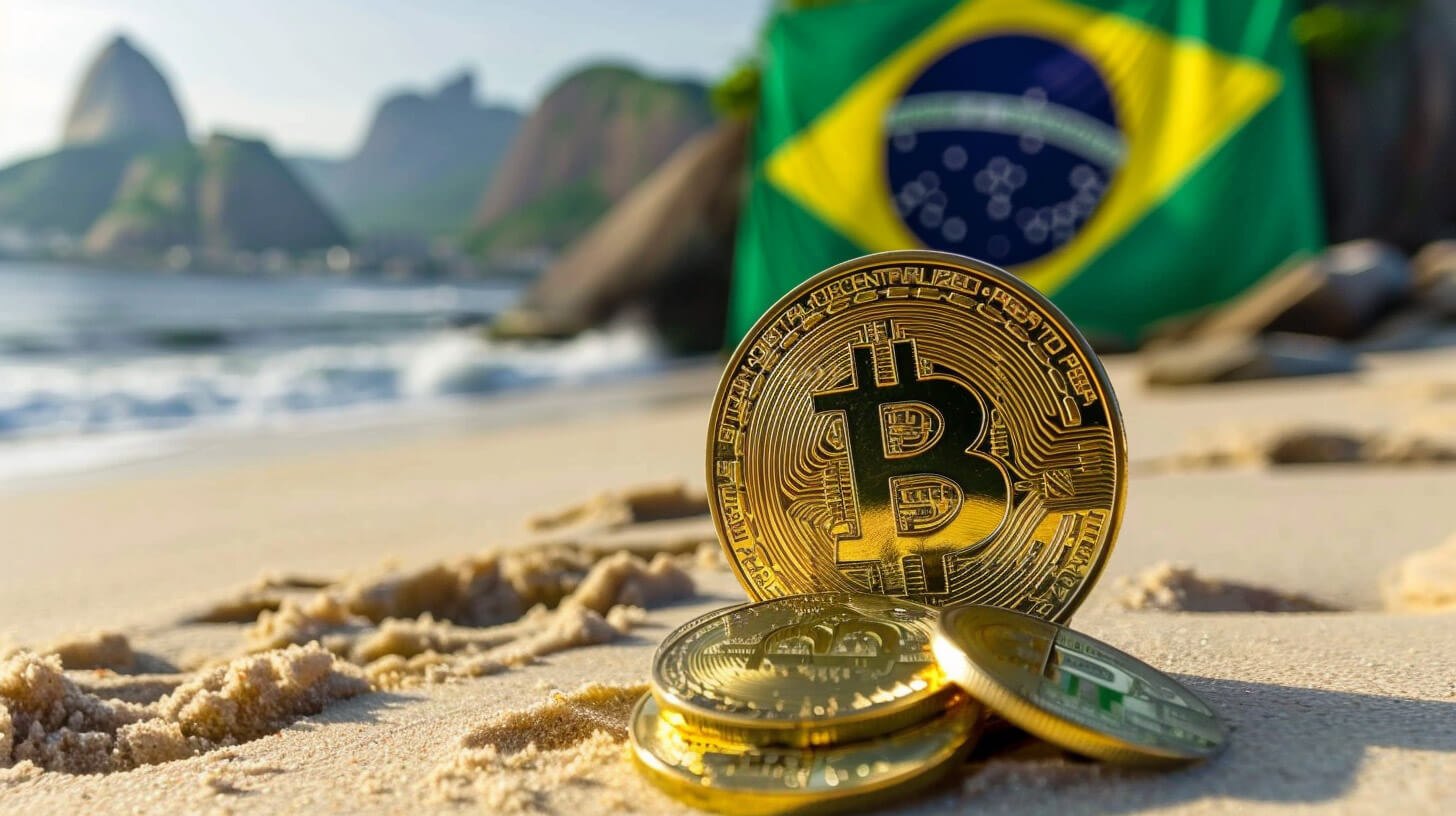
Discover the cities of Jericoacoara, Rolante and São Thomé das Letras, three tourist cities that use Bitcoin as everyday money. Understand how the Lighting Network plays a crucial role in promoting the use of Bitcoin as a payment method.
Store of value or medium of exchange?
Bitcoin (BTC), the market’s leading cryptocurrency, is establishing itself as a reliable, liquid, and international store of value. With a market value of more than $1 trillion, Bitcoin is already larger than several currencies issued by national governments. It is striking that Bitcoin is already larger than the Russian ruble and the Swiss franc.
After years of technical discussions, Bitcoin’s base layer is establishing itself as a large-dollar settlement network. At the same time, transactions that require low costs and high speed are carried out on second-tier, centralized or decentralized solutions.
In particular, the Lightning Network (LN), a solution proposed to improve the scalability of Bitcoin, is probably the most widely used tool for handling small Bitcoin payments or making everyday purchases.
In Brazil, at least, LN is establishing itself as a popular option for making daily payments in three tourist cities: Jericoacoara, São Thomé das Letras and Rolante.
These cities are mainly located in the north, center and south of Brazil. In all three cities, Bitcoin use was driven by local nonprofit projects.
Learn a little more about these three success stories from the Bitcoin world.
This article was originally published on the Brazilian blog Coinextand focused on bringing educational content about Bitcoin and the digital asset market.
São Thomé das Letras
São Thomé das Letras is undoubtedly one of the most mystical places in Brazil. The city, which has only 8,000 inhabitants, is one of the most important tourist cities in Minas Gerais, the state of which it is part.
São Thomé das Letras is located high on a range of mountains and offers beautiful views from anywhere in the city. Furthermore, the city is surrounded by waterfalls and rivers that are easily accessible. Another highlight are the countless legends and mysticism associated with the region, involving gnomes, aliens, elves and other mythological creatures.
And it was amid this scenario that the Mountain Bitcoin project emerged. The project, started by a local bitcoiner, aimed to spread knowledge about the leading crypto among the city’s residents, mainly traders and students.
The result was impressive. Dozens of local businesses are putting up stickers that read: “We accept Bitcoin.” Payments are made via LN via Satoshi and Blink Wallet.
Victor Souza, resident of São Thomé das Letras, declared that the project has aroused particular interest in Bitcoin among children:
“The children received a number of satoshis in their wallets, which they can then spend on fruit at the largest local supermarket, which has agreed to participate in the project. The children were extremely happy and eager to learn more about Bitcoin. Bitcoin is in fact a generational technology, which arouses the interest of young people. Ultimately it is something inevitable, a natural evolution of money.”
Furthermore, Victor noted that payments in Bitcoin are still uncommon compared to traditional methods, despite many businesses accepting the digital asset:
“Cash payments are still more common, and that is normal. People don’t want to spend bitcoin. They prefer to get rid of weak government money. But just the ability to make purchases in bitcoin is a major evolution for the use of digital money.”
Jericoacoara
The city of Jericoacoara, located in northeastern Brazil, became known as Praia do Bitcoin. Inspired by El Zonte, based in El Salvador, Jeriquaquara pioneered the use of Bitcoin as a means of payment.
The project was spearheaded by bitcoiner Fernando Motolese, who promoted educational activities with local students and traders.
“The school librarian told me that the computers in the IT room had been turned off for two years. I am a computer technician. So I told the principal to raise money to repair the school’s computers.”
Motolese elaborated:
“We started to get closer. I posted online that I needed resources to repair the computers. This opened up the possibility that we could become closer. So the folks at Bitcoin Beach donated 0.1 bitcoin to us. With this donation of 0.1 bitcoin from Bitcoin Beach, we carried out this activation, which consisted of producing 408 paper wallets.”
Integration with LN was fundamental to Bitcoin adoption in the region, where there are now several companies accepting the leading digital asset.
Roland
Located in the south of Brazil, Rolante has only 21,000 inhabitants. However, more than 200 companies accept the region’s major cryptocurrencies, a very significant number.
Bitcoin adoption in the region was driven by married couple Ricardo and Camila, who founded the Bitcoin É Aqui project. In addition to encouraging the use of Bitcoin in trading, they also organized the Bitcoin Spring Festival, which brought together Bitcoiners from all over the country.
Notably, the couple stated that while Bitcoin adoption will help boost tourism in the city:
“The ‘Bitcoin is here!’ project comes at a time when local traders were hungry for something to boost tourism in the region. And at the same time, when I was already restless and had to pass on the benefits of Bitcoin outside of myself.”
Victor Souza, head of SEO at Criptonizando, highlighted that the vast majority of merchants accepting Bitcoin in the city use the Lighting Network to process payments, which are then consolidated into the base tier:
“With the introduction of Bitcoin as a settlement layer for large amounts, LN is gaining fame as the most important open protocol for these payments. Due to the still somewhat complex UX, many sellers opt for custodial wallets, which can then be sent to their own address.”
Brazil and other countries in Latin America are establishing themselves as early adopters of Bitcoin. The region has several countries with weak and inflationary currencies, which drives the adoption of key digital assets. Initiatives such as Praia Bitcoin, Montanha Bitcoin and Bitcoin É Aqui have advanced in adopting Bitcoin as a means of payment, which could take decades globally.







Leave a Reply